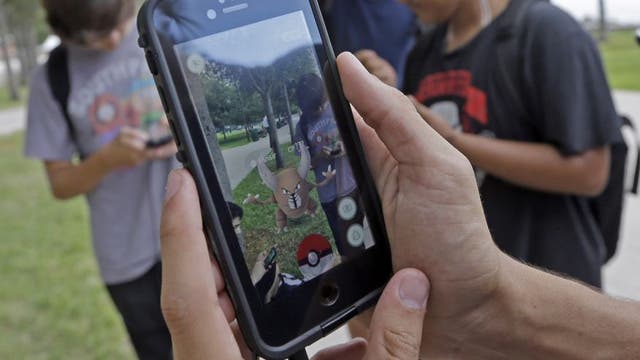Can Pokemon Go help mental illness?
It’s the latest video game craze and people of all ages are addicted to Pokemon Go. But can this augmented reality result in more than just a high score? Dr. Manny sits down with Dr. Ben Michaelis who says his patients with depression, anxiety and other mental health issues are seeing a benefit
About a week ago, three separate patients of mine— who don't know each other and don’t usually get out much— told me that they started leaving the house more and walking around. One of them said that she has gotten more exercise this week than she had in the previous three years. As a clinician, when something like that happens you take notice.The same thing was behind their newfound energy and engagement— Pokemon GO
The popular app that takes advantage of the camera in your smartphone to make it seem as though there are things in your environment that are not actually there, which in this case are the Pokemon characters the player must catch.
The upside
For people who suffer from mental health issues— such as anxiety, agoraphobia or depression— that tend to keep them from getting out and interacting with the world, augmented reality apps and games like Pokemon GO can be helpful for getting them to engage with their surroundings. It’s playful, requires energy and makes the user get up and out to interact with the world.
The downside
I don't want to oversell the opportunities because I think, if we keep our expectations in line, that some games can truly be a useful tool for people. Augmented reality apps shouldn't be seen as a cure but as a tool for helping to improve some symptoms that are associated with certain mental illnesses.
There is also evidence that some people are getting too engaged. A few people have gotten hurt while not paying attention to their surroundings. Spending too much time on the app isn’t healthy either because the user could lose touch with reality.
As we know, too much of a blessing is a curse. But the potential to do real good is there.
Of course, people should be working with their treating clinicians to help them achieve mental health and address the specific symptoms of their own illnesses, but being outside, exercising and doing highly focused, goal-oriented activities have all been shown to help reduce some of the symptoms associated with anxiety and depression, as well as other mental illnesses.
The future
The possibilities for augmented reality as a therapeutic tool are truly endless. For example, let’s say you have someone with a phobia of planes or snakes or social phobia. Developers can create apps using augmented reality that allow people to face their fears through their phones or some sort of simulator. The only documented way to overcome your fears are to face them but the problem that most people have is that they become so overwhelmed by the prospect of facing their fears that they never actually do it. This technology can help lower people's anxiety about approaching their fears and ultimately help them to overcome what is in their way.
Dr. Ben Michaelis is a clinical psychologist in full-time private practice in Manhattan and is a Visiting Scholar at Columbia University. Dr. Michaelis writes, speaks regularly about mental health, creativity, taking action and helping people to get 'unstuck;' He is the author of Your Next Big Thing: 10 Small Steps to Get Moving and Get Happy. For more information go to http://www.drbenmichaelis.com/.

